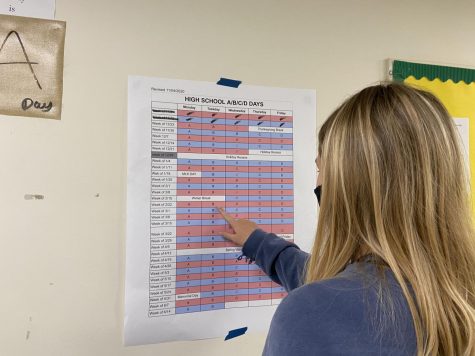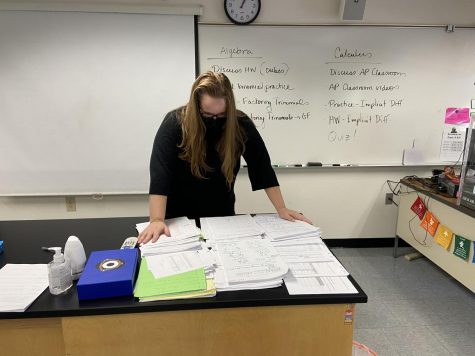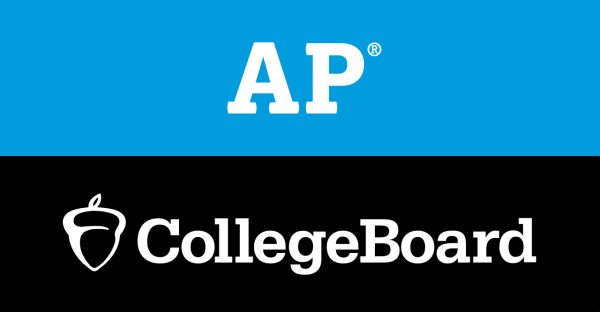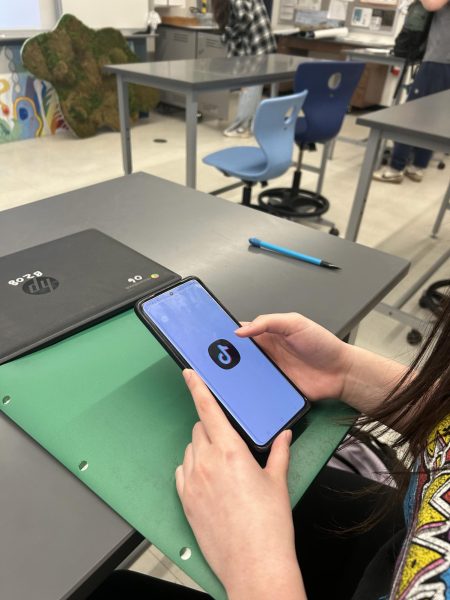AP Exams During a Global Pandemic
Amidst the Coronavirus pandemic, students have been forced to learn and go to school differently. Midterms have already been canceled for some schools, and many SAT’s have been postponed. These cancellations bring up the question: Should AP exams next May be kept the same, modified, or canceled? Since some states are experiencing different school openings, are students being educated the same, and if not, is it fair to administer the same exam?
High schoolers across the country are facing the looming threat of AP testing and other standardized tests, and the pandemic’s effect on their scores. Along with worries surrounding Covid, social setbacks, and mental health issues, high schoolers now have to worry about testing they may be thrown into blindly. As a result of nationwide feedback, CollegeBoard made changes to both 2020 AP testing, as well as 2021 AP testing. The AP exams were changed because many students’ in-school learning ended in March. Therefore, the exam was changed to only include topics that were learned by March. “The exam was administered at home”, says Princeton Review, because of Coronavirus concern. Because of this, the exam was shorter and very fast in order to avoid cheating and distractions. Christina Hunter, an AP Calculus teacher from Hall high school, says, “Times are different now, and every-other-day classes have made learning disjointed. Students are making fewer connections with teachers, and students have fewer connections between the concepts.” The new school layout makes learning concepts much harder than it was before, for everyone.

Last year, to help students who were struggling during this time, Collegeboard released videos on their website, covering every topic that was on the exam. This way students knew exactly what was on the test. Also, since online learning was very new by the time of the exams it was harder for students to prepare. These videos gave students an extra outlet to study. Since many students were confused and unmotivated during this time, CollegeBoard tried to find ways to help them. Ms. Hunter says that, “College board was very generous this past year. They created daily test prep videos, and went back to the beginning of the year, and made new videos covering every unit. Collegeboard is continuing this trend by adding AP daily videos to AP classroom.” Although Collegeboard tried adding new features to their website to help students, many still struggled with the new testing. To illustrate, Sophia DeMaio, a high school senior, states, “I definitely had mixed feelings about the exams, because one of mine was very hard, and one was much easier. So honestly, I think it really depends on your class, as well as the learning environment you take the test in. For me, taking it at home was difficult because it’s not the greatest test environment, and I get easily distracted. Overall, the tests could use tweaking, but it wasn’t completely bad.” However, despite many critiques of the exams this year by students, Collegeboard did the best they could do with what they had.
States all over the country are experimenting with ways to resume learning, from both at home and in school. For example, Texas is already fully back in school “where Republican governors are requiring in-person classes”, says The Washington Post. Whereas Hall, our school, is trying half online and half in school, or a “Hybrid” model. Arguably, in-person school is a lot easier than online, for teachers, students, and parents. So it is unfair that some states are already going fully back in-school, while other states are either fully online or half and half. As a result of these differences, students are learning at varying paces. Some kids have more in-person class time, which means more interactive and thorough lessons. Whereas other students around the country may have had minimal (if any) hours in a physical classroom. This means that some students will be more prepared than others come May when AP exams are administered. Adolfo, a high school senior and journalism student, says that “The school system is trying its best to educate students during the pandemic even though it isn’t very efficient. I don’t learn very much during online school since the environment is so different. It’s hard to find motivation when you’re on your couch at home.” Many students agree with his statement that it’s “very hard to find motivation” during online school. This lack of motivation very well could impact the scores that students receive.

As the pandemic progresses, and new updates are being announced every day, AP exams are up in the air. However, everyone who was interviewed for this piece wholeheartedly agrees that the exams need to at least be modified again in some way. Adolfo says, “Exams should be modified because you aren’t getting the same education as you were before. It is a lot harder for AP students to learn when they are only seeing their classes twice a week. Many classes are already way behind schedule.” Ms. Hunter agrees with this statement as she mentioned that her classes, “are way behind from last year”. She argues that College board has to remove later units as they did for this year’s exams since teachers are struggling to maintain their normal schedule. Overall, due to the state of the country, modifications must be made to the AP exams in May of 2021 to accommodate everyone. The pandemic has disproportionately affected millions of students around the country. Due to this inequity and overall stress, many agree that Collegeboard must make alterations to the exams.





